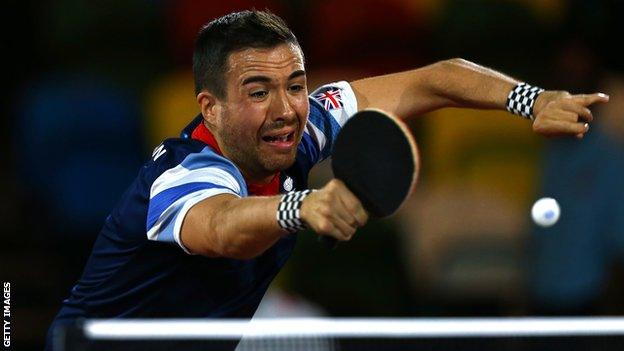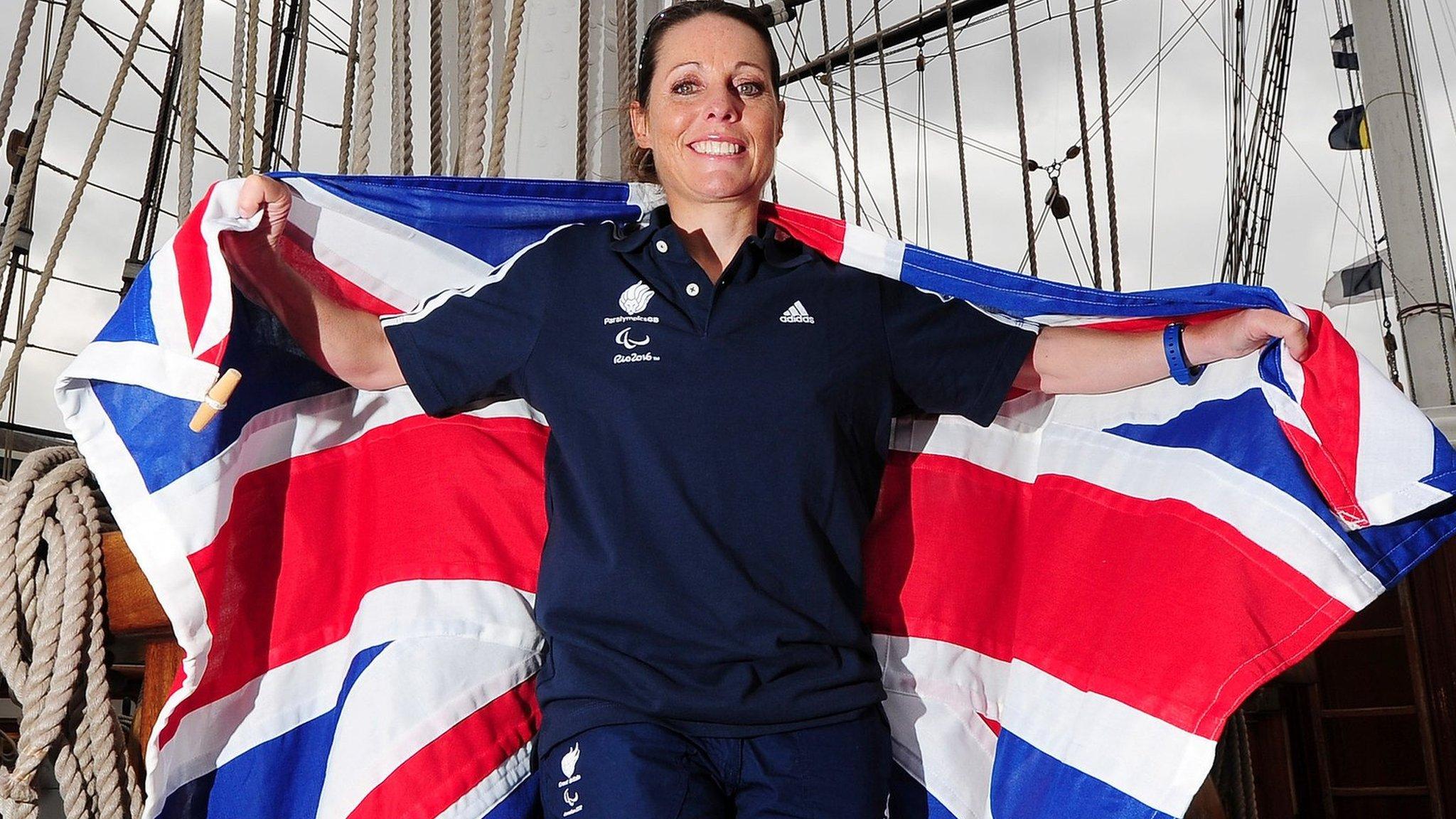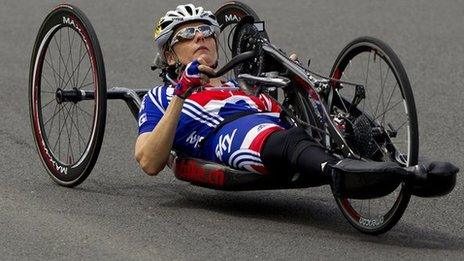Table tennis at the Rio 2016 Paralympics: All you need to know
- Published
Paralympic Games on the BBC |
|---|
Venue: Rio de Janeiro, Brazil Dates: 7-18 September Time in Rio: BST -4 |
Coverage: Follow on Radio 5 live and via live text commentary. |

Britain's Will Bayley is the reigning world champion and Paralympic silver medallist in the men's class 7 singles event
How does it work?
The sport follows the rules set by the International Table Tennis Federation (ITTF) with only slight modifications to the serving laws for athletes competing in wheelchairs. Each player aims to hit the ball over the net on to the opponent's half of the table and wins the point if they fail to return it successfully.
A match is played over the best of five sets, with each won by the first player to reach 11 points. If the score in a set reaches 10-10, though, a player must establish a two-point lead to win it. The server changes every two points.
Competitions take the form of preliminary rounds followed by knockout stages.
In Rio, the team events will be played over the best of three matches - starting with a doubles contest and then up to two singles matches to decide the tie.
Athletes with a range of impairments can take part and there are 11 different classifications: 1-5 for those competing in wheelchairs, 6-10 for those who play standing and 11 for standing athletes with a learning disability.
Athletes are assessed and allocated a number between 1 and 10, depending on their functional ability - reach, muscle strength, locomotive restrictions, balance and ability to grip the bat. In the wheelchair category, those competing in class 1 have the highest level of impairment with class 6 being for standing athletes with the highest level of impairment.
Who are the British medal hopes?
Will Bayley is the world champion in the men's class 7 and will be hoping to go one better than he did in London, where he won silver. Former rugby player Rob Davies goes in as European champion in the men's class 1 and both will also be hoping to make an impact in the team competitions.
Who are the other challengers?
China topped the medal table at London 2012 with 21 medals, including 14 golds, and they have led the medal standings at every Games since Athens in 2004. At the 2014 World Championships, Chinese athletes won another 14 world titles, three times more than the second-place South Koreans, but there are also some strong European nations including Ukraine, Poland and Germany.
Did you know?
Both Natalia Partyka of Poland and Australia's Melissa Tapper are competing in the sport at both the Rio Olympics and Paralympics.
Croatia's Sandra Paovic will be completing the double - she represented her nation at the 2008 Olympics before a car crash in 2009 left her with limited use of her legs but she is now world and European Champion in the Class 6 event and will be making her Paralympic debut in Rio.
ParalympicsGB London 2012 medals
Four (Will Bayley, silver - class 7 singles; Paul Davies, bronze - class 1 singles; Will Bayley, Ross Wilson & Aaron McKibbin, bronze - class 6-8 team; Sara Head & Jane Campbell, bronze - class 1-3 team).
- Published23 August 2016

- Published5 September 2016
